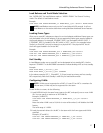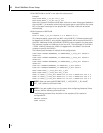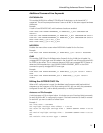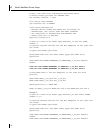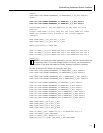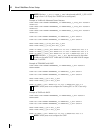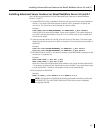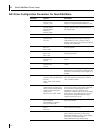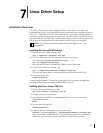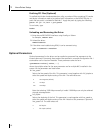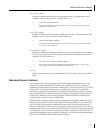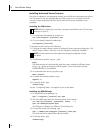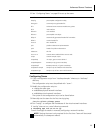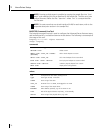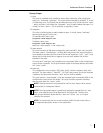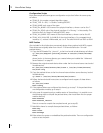
65
7
Linux Driver Setup
Installation Overview
The driver is distributed in three packaging formats: binary RPM, source RPM, and
compressed tar archive. The binary RPM includes precompiled driver modules for kernels
2.2.14-6.1.1 (Red Hat 6.2) and 2.2.16-22 (Red Hat 7.0), and is the preferred installation
method for systems running these kernel versions. The source RPM is suitable for use on
any system that has the RPM utility installed and a properly configured kernel source tree.
The tar archive is made available for cases where the RPM utility is not installed.
Installing the Source RPM Package
1
To install the source RPM package, type:
rpm -i bcm5700-<version>.src.rpm
2
CD to the RPM path and build the binary driver for your kernel:
cd /usr/src/{redhat,OpenLinux,turbo, ..}
rpm -bb SPECS/bcm5700.spec
Note that the RPM path is different for different Linux distributions.
3
To install the newly built package, type:
rpm -i RPMS/i386/bcm5700-<version>.i386.rpm
The driver will be installed as /lib/modules/<kernel_version>/net/bcm5700.o.
4
To load the driver, type:
insmod bcm5700
A newly installed Redhat 7's Enterprise kernel needs to be recompiled to regenerate
versioned symbols before any newly compiled driver can load.
Building the Driver From a TAR File
1
Create a directory and extract the files:
tar xvzf bcm5700-<version>.tar.gz
2
Change directory to src directory.
3
Build the driver bcm5700.o as a loadable module for both uniprocessor and
multiprocessor systems:
make
4
Test the driver by loading it:
insmod bcm5700.o
5
Install the driver in /lib/modules/<kernel_version>/net:
install -m 644 bcm5700.o /lib/modules/<kernel_version>/net
Note that a newly installed Red Hat 7 Enterprise kernel needs to be recompiled to
regenerate versioned symbols before any newly compiled driver can load.
NOTE:
The following procedures require that you are logged on as “root”
or equivalent.



